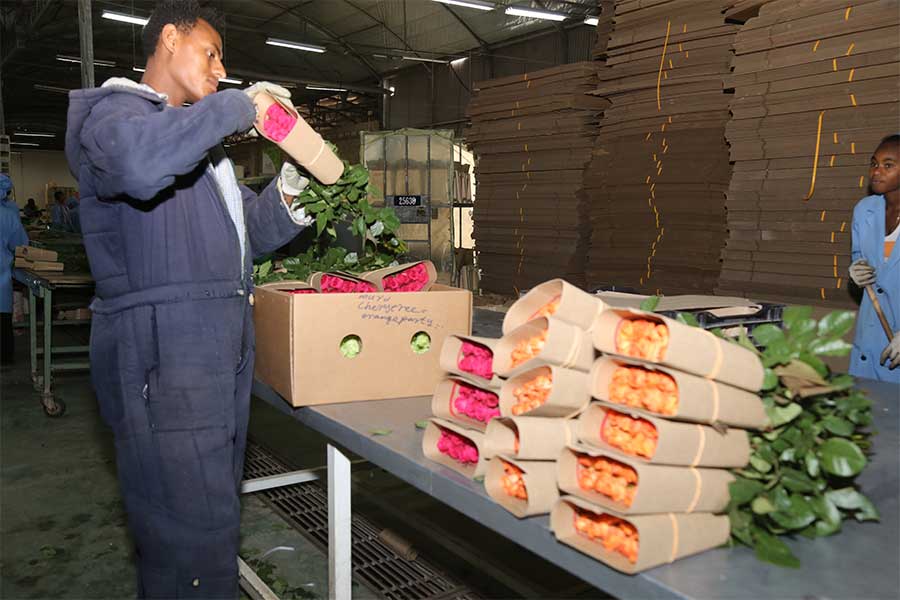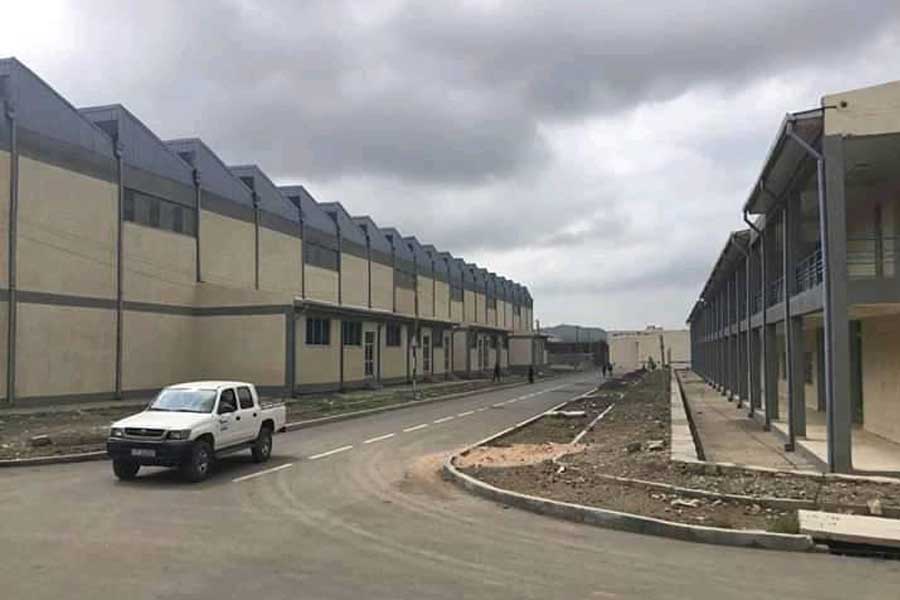
The joint efforts of local NGOs and Meqelle University has established a temporary shelter in Meqelle, Tigray Regional State for the homeless to protect them from Novel Coronavirus (COVID-19).
The temporary shelter became operational on April 27, 2020, with 13 women and eight children. The accommodation, which has the capacity to host 50 women and children, is run by the Yikono Movement; Meqelle University; the Organisation for Social Services, Health & Development (OSSHD) Tigray Branch; and Midre’Genet Elderly Care Centre.
The women used to work in bars and hotels in the city. Most of them are commercial sex workers, though some of them are cleaners and cooks. They no longer have income and could not pay their rent due to the state of emergency declared in the Regional State that has banned bars and night clubs, according to Tsedina Abadi, the founder of the Yikono Movement, a grassroots movement against gender-based violence in Tigray.
Located in Aynalem Community School, which is owned and run by Meqelle University, the shelter provides three meals a day, training, and sanitary and hygiene products. It also provides support for children between the ages of two months to seven years old. The women and the children have started gardening in the morning.
“We had already bought food for students at Meqelle Institute of Technology," said Semere Seifu, head of the construction project office at the University, "so we brought back the kitchen staff to provide meals for the women and children.”
The idea for the shelters came about after the first case of COVID-19 was reported in Addis Abeba in mid-March, according to Tsedina.
"The world was going into lockdown, and we understood this might soon be the case in Ethiopia too," she said, "so we started to wonder what would happen to the homeless if this were to take place in Tigray?”
Last week, Tigray Regional State reported its first four positive COVID-19 cases. The four people, who are between 24 and 33 years of age, are truck drivers who returned from Djibouti.
Midre’Genet Elderly Care Centre started giving them life skills training at the beginning of this week, according to Amanuel G. Tsadkan, general manager of the Centre.
"We'd also like to provide some basic education, since many of them have never been to school,” he said.
At first, the Movement assumed the government had a plan and wanted to provide support. But it was soon realised that the government was depending on non-governmental organisations and private individuals to provide shelter, according to her.
"There had already been a project providing shelter for homeless men at Hasti Yohannes Primary & Secondary School,” said Tsedina.
The regional Labour & Social Affairs Bureau has been planning to turn universities and churches into temporary shelters and provide food for some time now, according to Kiros Hagous, the Bureau head.
The operators of the shelter have mobilised 180,000 Br and an additional 3,200 dollars through GoFundMe.
The main costs of running the shelter are proper nutrition for the children, according to Tsedina.
“We have pregnant women and children between the ages of two months and two years that need supplements and cannot have the meals we normally provide," she said. "We also have an HIV positive mother who can’t breastfeed."
Kokob Gebru, 25, a mental health specialist and lecturer as well as a member of the Yikono Movement, volunteered to provide training and counselling for the women on nutrition, reproductive health and other important health issues during their stay.
Aynalem Health Centre has sent health workers to assess the condition of pregnant women and is working to ensure they can have regular check-ups.
Goitom Tegegn, secretary of the COVID-19 Overseeing & Controlling Committee and director for the International Office at Meqelle University, appreciates the initiative.
"We're also planning to rehabilitate homeless people," he said. "Community service is our responsibility, and we're working toward empowering people who are susceptible to the pandemic."
Meqelle University is also distributing 3,000 injerasto the homeless and to those who are deprived of daily food, according to Goitom.
Ansha Nega, assistant professor of public health at Addis Abeba University, also says that the homeless, the disabled, women and children are highly susceptible to the pandemic and need help.
"These sections of society should be given sufficient attention," she said.
She also recommends that they be provided with professional training that will enable them to start jobs after the COVID-19 pandemic is over.
The sheltered women in Meqelle receive entrepreneurship training, as well as classes on reproduction and hygiene.
PUBLISHED ON
May 09,2020 [ VOL
21 , NO
1045]

Fortune News | Jun 14,2020

Fortune News | Nov 09,2019

Commentaries | Jul 03,2021

Radar | Mar 14,2020

Radar | Aug 08,2020

Dec 22 , 2024 . By TIZITA SHEWAFERAW
Charged with transforming colossal state-owned enterprises into modern and competitiv...

Aug 18 , 2024 . By AKSAH ITALO
Although predictable Yonas Zerihun's job in the ride-hailing service is not immune to...

Jul 28 , 2024 . By TIZITA SHEWAFERAW
Unhabitual, perhaps too many, Samuel Gebreyohannes, 38, used to occasionally enjoy a couple of beers at breakfast. However, he recently swit...

Jul 13 , 2024 . By AKSAH ITALO
Investors who rely on tractors, trucks, and field vehicles for commuting, transporting commodities, and f...

Oct 25 , 2025
The regulatory machinery is on overdrive. In only two years, no fewer than 35 new pro...

Oct 18 , 2025
The political establishment, notably the ruling party and its top brass, has become p...

Oct 11 , 2025
Ladislas Farago, a roving Associated Press (AP) correspondent, arrived in Ethiopia in...

Oct 4 , 2025
Eyob Tekalegn (PhD) had been in the Governor's chair for only weeks when, on Septembe...